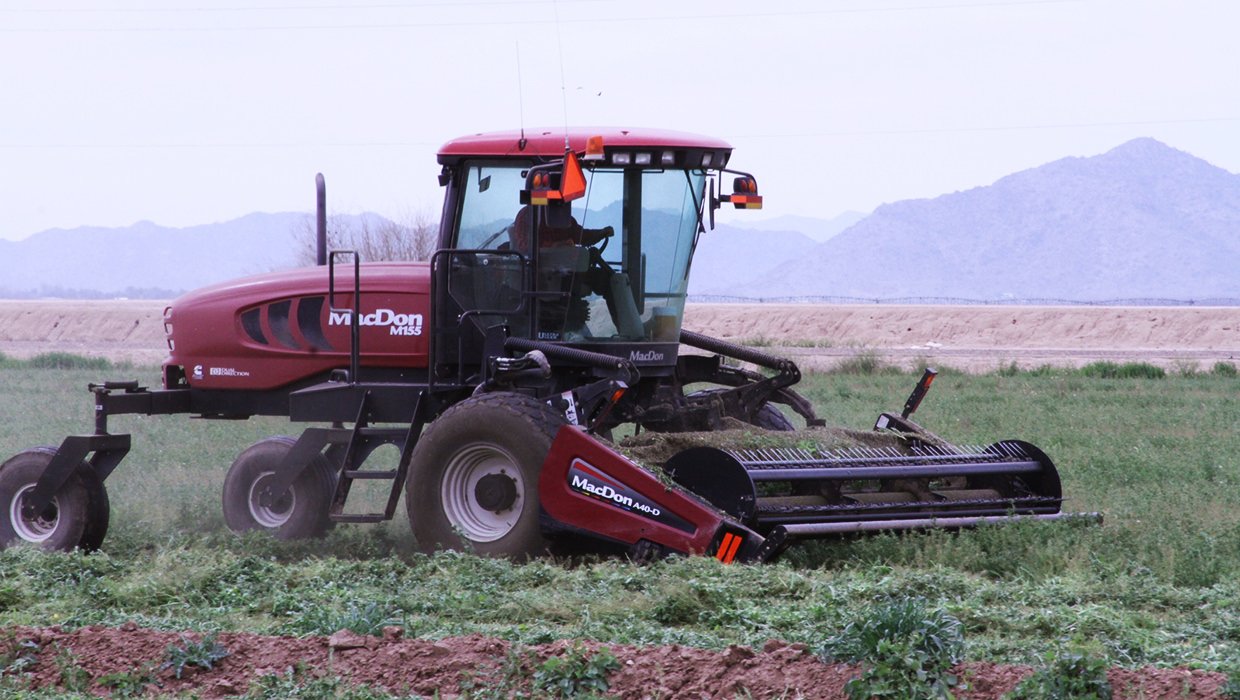
Farming Provides Economic Sovereignty For Ak-Chin Indian Community (FI)
We have no minerals or other natural resources. The water is vital and will be just as important to our people 10,000 year from now as it is today. We can be farmers for all our existence.
-Leona Kakar
From 1946 through 1961, the Bureau of Indian Affairs (BIA) implemented a leasing program for the people of Ak-Chin Indian Community. By 1956, the BIA leased 12,387 of Ak-Chin Indian Community farmland to non-Indians.
When Richard Carlyle returned home from the service in 1954, he saw non-Indian farmers making money off the Ak-Chin Indian Community land. His belief was that the Community should create its own farming enterprise by taking back the farmland from the non-Indian farmers once their land leases expired.
Carlyle began to develop a plan and hired Wayne Sprawls to act as a farm manager.
Carlyle and Sprawls met with members of the Community to share his detailed vision for the community. Some members were hesitant of the idea, primarily because they were employed by the non-Indian farmers and feared they would lose their jobs if the plan went through. But over time, the Community realized that farming their own land would mean self-sufficiency for the entire Ak-Chin Indian Community.
The Ak-Chin Indian Community was created by Executive Order No. 1538 by President Taft on May 23, 1912. On Sept. 2, 1912, a second Executive Order was created. In 1961, the Tribal Council was formally recognized under the Indian Reorganization Act of 1934. Accordingly, the Ak-Chin Indian Community began farming themselves, which would ultimately provide economic sovereignty.
According to Councilwoman Delia Carlyle Ak-Chin Indian Community is very proud of its farming enterprise.
“When we began our farming back in the 1960s, we couldn’t get assistance from the BIA. But thanks to some of the local Maricopa families that loaned the Ak-Chin Indian Community equipment, we could begin farming our own land. And these families are still part of the area – the Honeycutt’s, the Farrell’s and the Dunn’s. We have never forgotten what these families did for us and what a risk it might have been to help us in that way. Their generosity made sure that we were able to have a successful farming operation. We will always be grateful.”
The 2025 COJO Championship Event, hosted by multi-Platinum recording artist Cody Johnson, is returning to… Read More
Bull riding fans across Arizona are in for a wild ride this October as Professional… Read More
Cowboy Lifestyle Network is thrilled to present the second annual October Country Fest at the… Read More
The Turquoise Circuit Finals Rodeo (TCFR) is headed to a new home for 2025! After… Read More
Imagine feeling the vibrant pulse of Diné culture as the autumn air sweeps across the… Read More
Buckeye, Arizona - Get ready to feel the music! The award-winning duo Maddie & Tae… Read More
This website uses cookies.
Read More